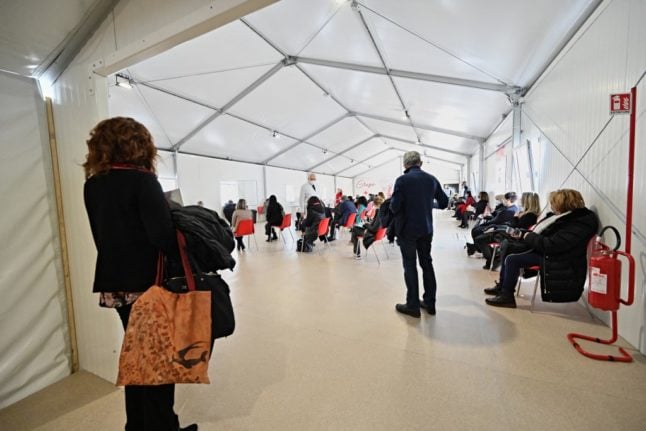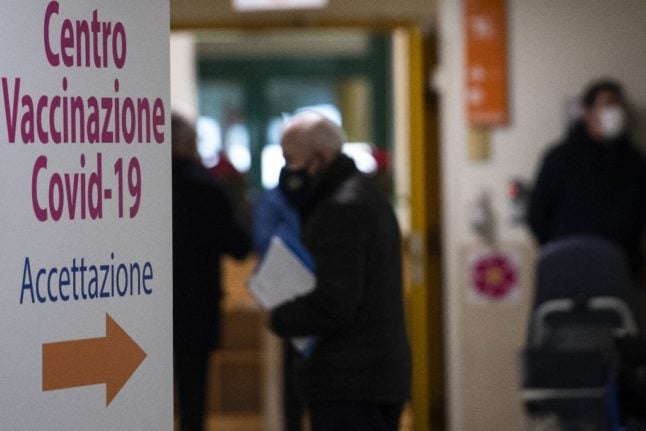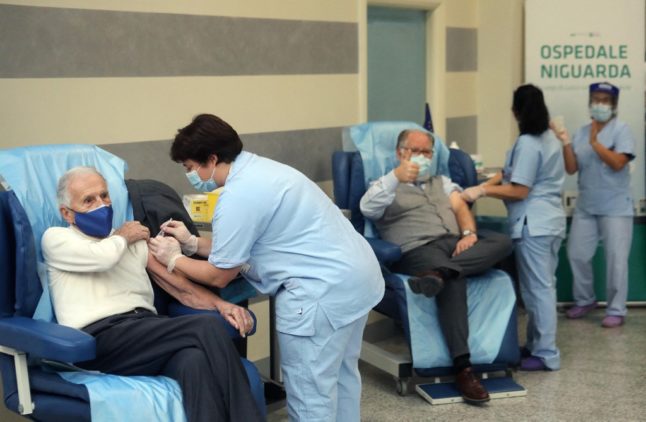In its first official guidance on how people who aren’t enrolled in the national health service should get vaccinated, Italy has issued an ordinance that makes exceptions for a few select groups.
Italian citizens who usually live abroad and are only in Italy temporarily will be allowed to book a shot even without the tessera sanitaria (healthcare card) that is usually required, according to the new ordinance, dated April 24th and signed by Covid-19 emergency commissioner Francesco Figliuolo.
READ ALSO: ‘We need ammunition’: Jabs for over-60s postponed as Italian regions run out of vaccines
Current and retired employees of European Union institutions or other international organizations living in Italy, as well as foreign diplomats, can also book without a health card. So can any of their dependent family members living here with them.
People in these categories will be able to register for vaccination using only their codice fiscale (tax code) or passport, cross-checked as applicable against their employer’s records or the AIRE (Registry of Italians Resident Abroad).
The usual priority order continues to apply, meaning that only people in high-risk age groups, clinically vulnerable people or people who work in schools or healthcare are currently eligible to get vaccinated.
These limited exceptions do not help others living in Italy without a tessera sanitaria, including foreign residents who have been unable to join the public health system because of bureaucratic delays or different regional rules.
READ ALSO:
- Reader question: Do you need a health card to get vaccinated in Italy?
- Tessera sanitaria: How do you apply for or renew your Italian health card?
- The essential Italian vocab for getting tested or vaccinated for Covid-19

While Italy has promised that everyone will be offered a vaccine regardless of nationality or immigration status, so far it has only allowed residents who are registered for public healthcare to book an appointment.
That has left residents who are outside the system, especially foreign retirees, unable to get vaccinated despite being in a high-priority category. People in this situation are still waiting to find out whether Italy will make arrangements for them to book, or whether they will have to wait months for jabs to become available on a walk-in basis.
OPINION: Bureaucratic barriers must not stop Italy vaccinating its foreign residents
The latest ordinance at least sets a precedent for booking vaccination without a health card, including allowing different government bodies to share records instead of using only tessera sanitaria databases.
To qualify for vaccination, the ordinance states, Italian nationals who don’t live in Italy must be registered on the AIRE. It is presumably aimed at Italians who have left homes overseas to wait out the pandemic in Italy.
The Local is continuing to follow this issue and will post any new updates on how to get vaccinated without a health card as they appear. Find more coverage of Italy’s vaccination campaign here.



 Please whitelist us to continue reading.
Please whitelist us to continue reading.
Be nice if Italy extended the same courtesy to us. Just sayin.